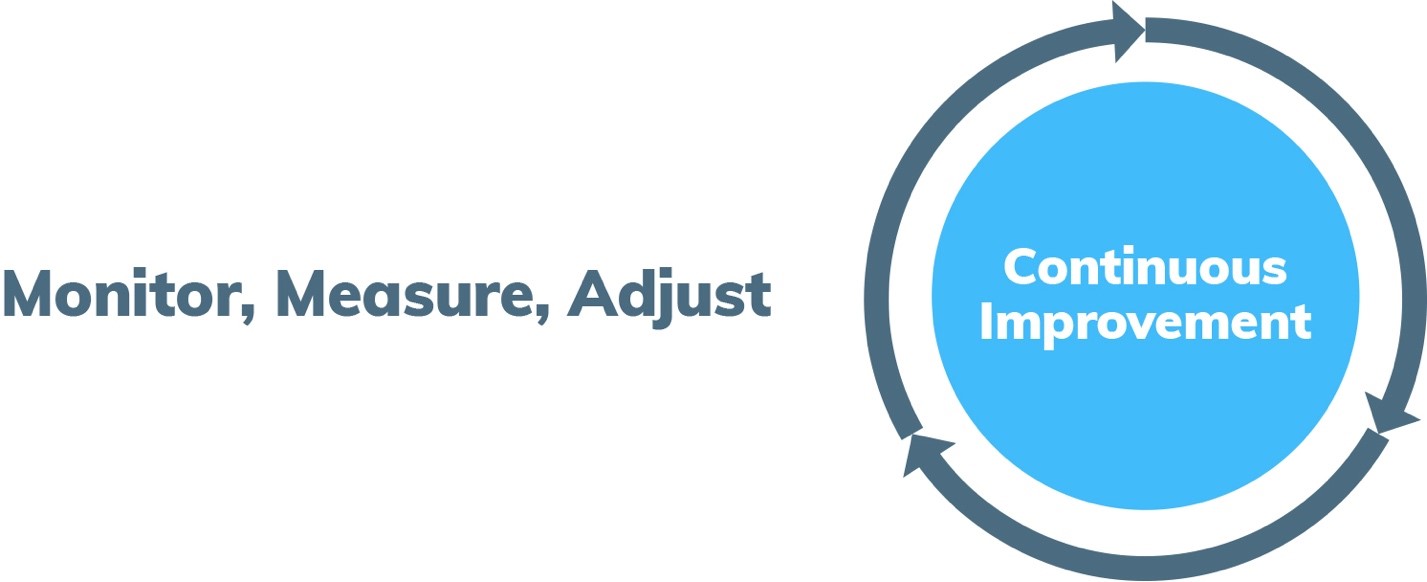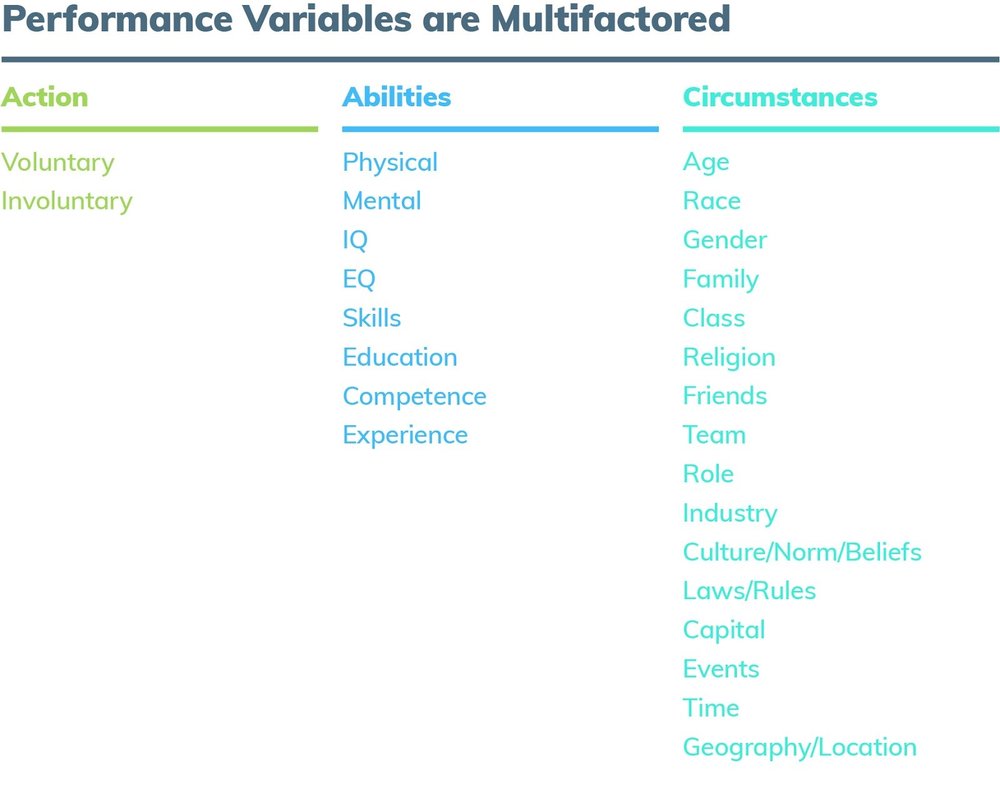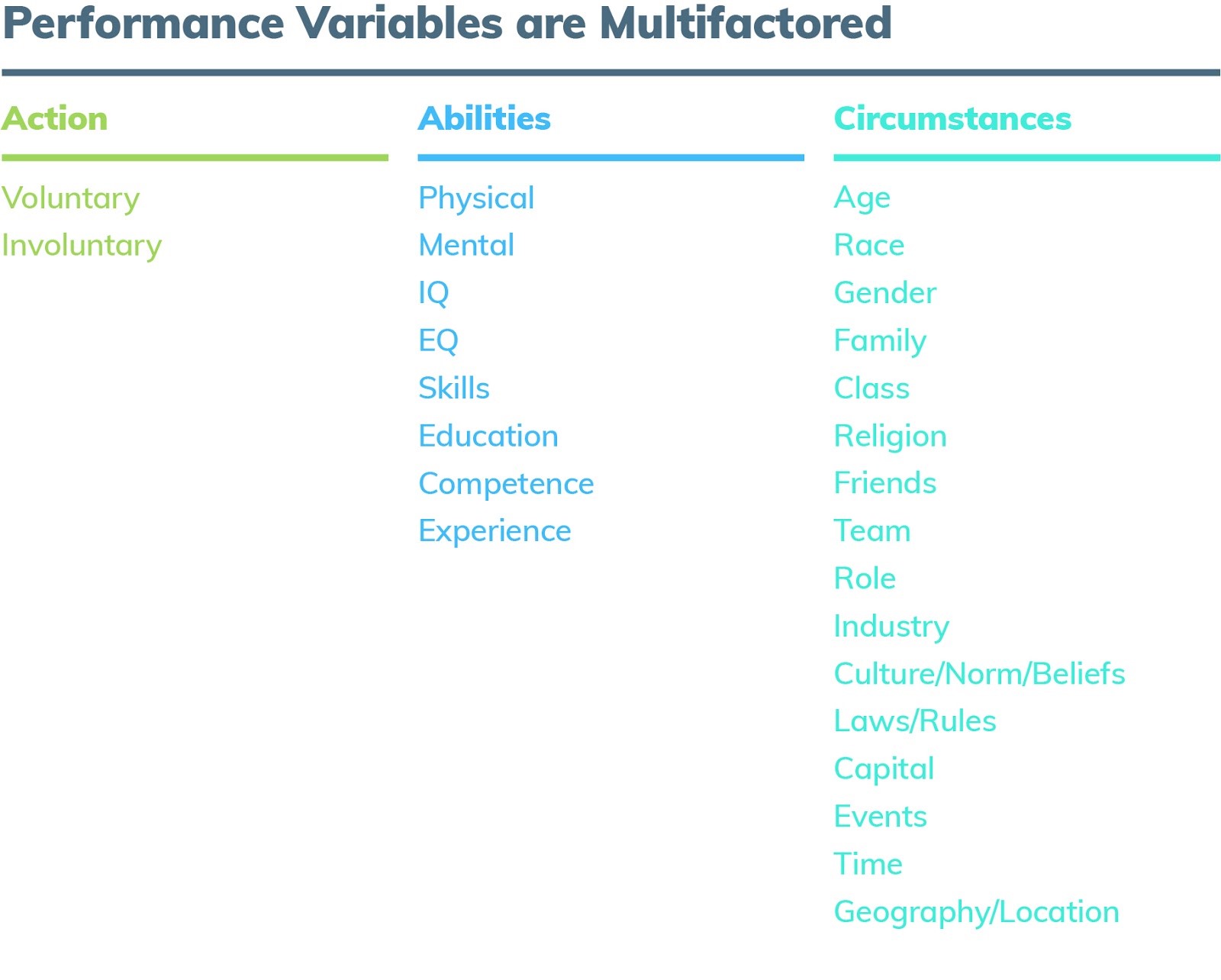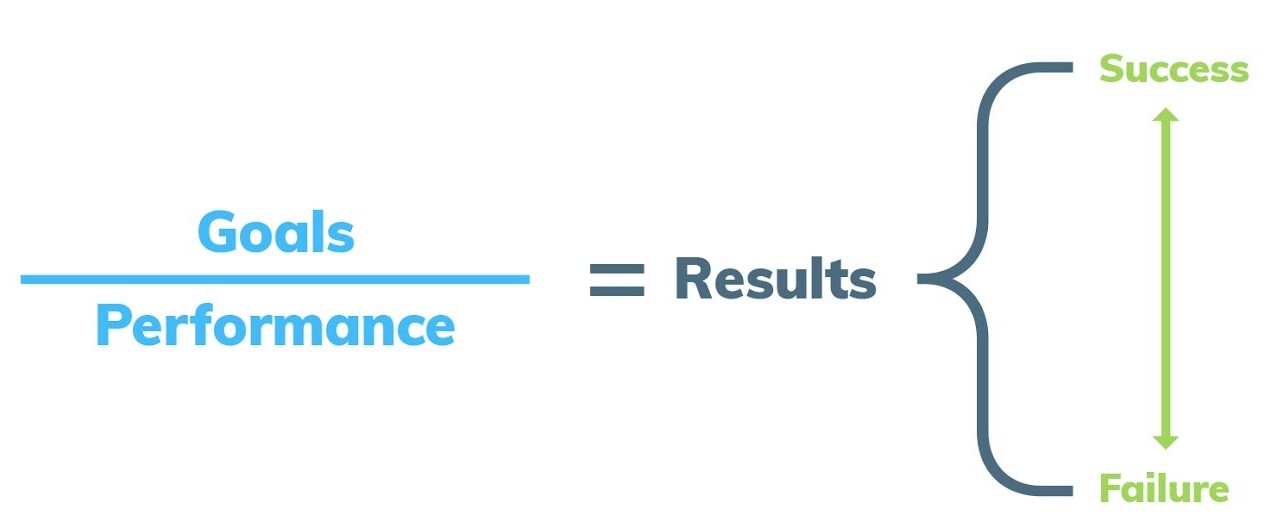This new formula, known as The Performance Equation, was developed for entrepreneurs, executives and self-driven professionals, who want to own their future and maximize their life by optimizing their personal performance.
We all know if we set a goal and work hard, we’ll be successful, right? Nope. Not always. While effort is essential, and the harder we work has a powerful influence on our success, not everything is possible with hard work alone.
Take me for example. When I was young, I really wanted to become a professional football player—especially for the Chicago Bears. Yep, all 5’9” of me. I really worked my butt off through pop-warner and high school football. As a matter of fact, I actually played college football, but no matter how much I wanted it, I just wasn’t NFL material. Hell, I don’t even think I was semi-pro material. If you asked anyone who knew me, they’d tell you that I was relentless, which means I probably got the most out of my natural ability. Nevertheless, my passion and tireless work ethic would never overpower my physical ability to perform at an NFL level.
I don’t feel bad about this because Michael Jordan—the best basketball player of all time—had a similar issue. Not with basketball, but with baseball. And not with his ability, but his circumstances.

To provide some context, at one point during Jordan’s journey to six NBA Championships, he decided to pursue his first love, baseball. He ended his basketball career with the Chicago Bulls after championship number three and pursued baseball. Although he did spend some time in the big leagues with the Chicago White Sox, MJ spent the majority of his baseball career with a Double A-minor league, the Birmingham Barons, where he had a very unimpressive career with a batting average of .202. The same physical and mental gifts that allowed him to dominate in the NBA didn’t translate to baseball. Perhaps if circumstances were different when he was a kid, and he got the right opportunity to play at the right time, he would have been the greatest baseball player of all time. But, at the end of the day, he wasn’t. After wrapping up his two or so years a baseball player, he returned to the Bulls and went on to win three more championships.
This got me thinking: what are the variables we need to consider when evaluating our performance? Whether you’re trying to reach a goal at school, church, work, a community organization, or otherwise, you’re required to perform. So, I thought, it makes sense to understand the variables needed to improve performance.
As a result, I spent more than a decade researching and studying human behavior and performance to develop the “Performance Equation.” The concepts behind the equation were known, taught, and applied long before me, I simply organized them so that I could more effectively share them with others; they are less about guaranteeing success and more about creating a framework for personal improvement.
The Performance Equation identifies five variables that ultimately determine how we will perform. By creating awareness around these variables, we can then pinpoint where we need to focus to drive better results.
Drumroll please! Here is the Performance Equation: performance equals your Decisions driven by the power of your Purpose multiplied by the sum of your (Action x Ability x Circumstances). If you’re thinking WTF, that’s okay. I will explain further.

Easiest said, the Performance Equation is not a real mathematical equation; it’s a little more abstract and shows the impact of our decisions.
DECISION
Decisions drive everything we do—whether they are made consciously or unconsciously. Therefore, one of the easiest things to do to improve decision making is to create awareness of it. Become mindful. This then fosters awareness of intent. Once we know we are making a decision, we are in a better place to make a more purposeful decision. One that is intentional, and aligned with purpose and desired outcomes. Our intentional decisions control the goals we set and ultimately how we perform to achieve them.
As you might imagine, the more aware you are of your decisions, the more effective you are. One way to align your thought process is with a decision tree. Ask: what is my desired outcome, is my intention appropriate, will my decision be purposeful?

After making a decision, the important part comes in. Evaluation, which takes a form of tracking. Determine if your decision drove the necessary performance to produce the desired result.
The evaluation process provides the ability to create a continuous improvement loop that will allow you to learn from the past (so you can improve in the future). Ultimately, this improves your ability to perform to reach your goals, helping to reduce failure and maximize success.
PURPOSE
While decisions are the key variable for our performance, Purpose is the power variable that helps us achieve the unimaginable.
What is purpose? It:
- Anchors our core beliefs of what should be (Our Why)
- Creates outcomes of greater value than ordinary results (Our What)
- Empowers us to act intentionally and relentlessly to reach our desired outcome (Our How)

Once we identify our WHY, WHAT, and HOW, we can start to fit the puzzle pieces into all areas of our work and lives.
To get real about purpose, turn this abstract idea and frame it so you can see it as reality. Define what it is and understand the intimate details of how you want to feel and expect others to feel when it becomes a reality. Image it. Use that image as your motivation to overcome the obstacles and stay relentlessly intentional to reach your goal.
Speaking of goals, let’s talk about the goal you want to achieve. Answer these five questions: How meaningful is your goal to you? Is the goal aligned with your purpose and purpose pillars? Is it a must-have or nice-to-have? How intentional will you be everyday to make it happen? Are you motivated enough to overcome challenges? Your answers will help you predict your performance and the probability of hitting your goal.
While sharing your goals and asking for feedback from those closest to you is important, do not let negativity or doubt sway you. Everyone has an opinion. It doesn’t matter if no one understands your purpose and you don’t need permission from anyone to do your thing. Whatever they say, just do it anyway. You will never regret spending time designing the life you’re purposed to have.
Below, we will dig into the remaining Performance Equation variables.
ACTION

Our actions are either voluntary—we decide to act—or involuntarily—our body decides to act. Essentially, this variable is controlled by the mind, consciously or subconsciously. While our conscious actions are driven by decisions, which we covered in depth above, a lot of our subconscious actions are driven by “hard-wired” decisions over time which form patterns—or habitual behaviors. Habits are very important to recognize and analyze because they provide insights into your strengths and weaknesses that may stem from subconscious decisions, cognitive bias, and addictions that are preventing you from being your best.
ABILITY
In relation to your performance, list the abilities you think you need to achieve your goal. Once you frame it, how do they rank? What are your physical, mental, and emotional strengths and weaknesses? Where do you have the most experience, skills, and competencies? How can you build on what you do well to accelerate reaching your goal? Where are your gaps? Can you fill the gaps with support from others—human or computer—to complement your weaknesses, so you can focus on what you do well? After you’ve thought these things through, rank the top three areas that you need to develop. You should now have a good idea of the abilities needed to reach your goal, and how to develop a plan to maximize them.
CIRCUMSTANCES
What are the current circumstances that impact your performance? Do they provide an advantage to achieve your goals? What are clear obstacles that prevent or slow you? List them. What is controllable? What is uncontrollable? Is it really uncontrollable, or do you have a mindset that makes you believe this is just how it is? Now prioritize what changes you can make in your circumstances to accelerate hitting your goals. And, create a plan to get there.
Action, ability, and circumstances are multi-factored variables, meaning there a multiple elements of each variable that influence the primary variable. The table provides better insights into each element.

Use the Performance Equation as a personal formula to help you achieve your goals. The formula will help you decide on the variables that need to be improved to reach your desired outcome and develop a training plan to do it. By measuring, managing, and modifying the variables in your equation, you will optimize performance to help you reach your goals and create a sustainable and satisfying career and life.
In future articles, we will explore the importance of mental and physical health to optimize your performance.
This article was originally published on August 7, 2019.

